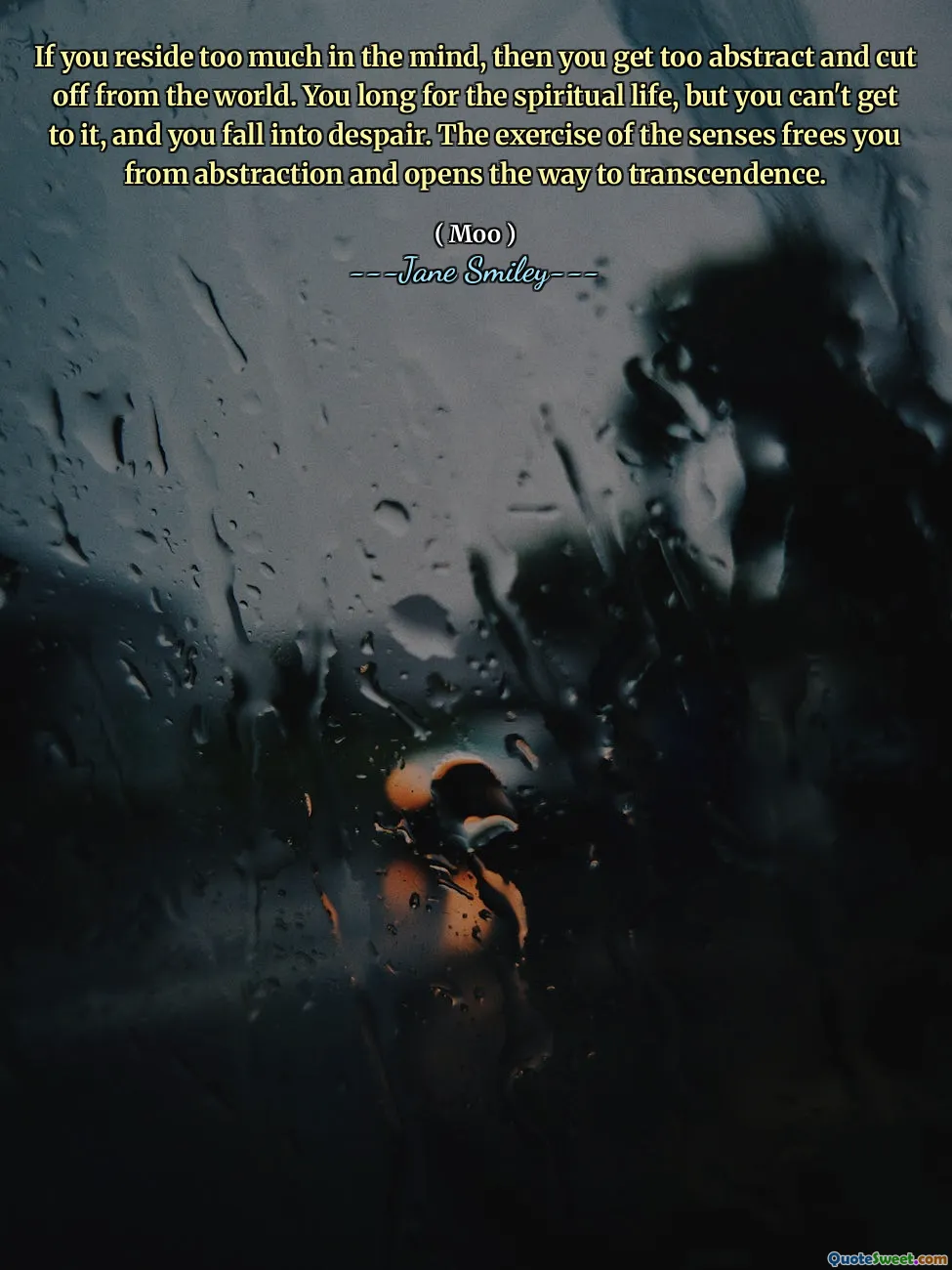
If you reside too much in the mind, then you get too abstract and cut off from the world. You long for the spiritual life, but you can't get to it, and you fall into despair. The exercise of the senses frees you from abstraction and opens the way to transcendence.
This quote highlights the delicate balance between intellectual contemplation and experiential living. When one predominantly resides in the realm of the mind, there's a risk of becoming disconnected from the tangible aspects of life, leading to feelings of alienation and spiritual longing. The mind, while a powerful tool for understanding and analysis, can sometimes foster detachment if not paired with direct experience. The quote suggests that engaging our senses—sight, sound, touch, taste, and smell—serves as a conduit to reconnect with the outer world. Through sensory exercise, we diminish the gap created by overthinking and abstraction, grounding ourselves in the present moment. This immediacy with the physical world acts as a bridge to transcendence, which in many spiritual traditions is an elevation beyond ordinary experience, reaching a higher state of consciousness or spiritual fulfillment. The warning against excessive separation from sensory experience resonates deeply in a modern context where digital immersion often encourages abstraction, detachment, and superficial interactions. Practicing mindful sensory engagement can be seen as a counterbalance, enriching our everyday lives and offering access to profound spiritual avenues. Ultimately, embracing the senses acts as a form of liberation, enabling us to experience life more fully and to approach spiritual transcendence in a more embodied and integrated manner.






